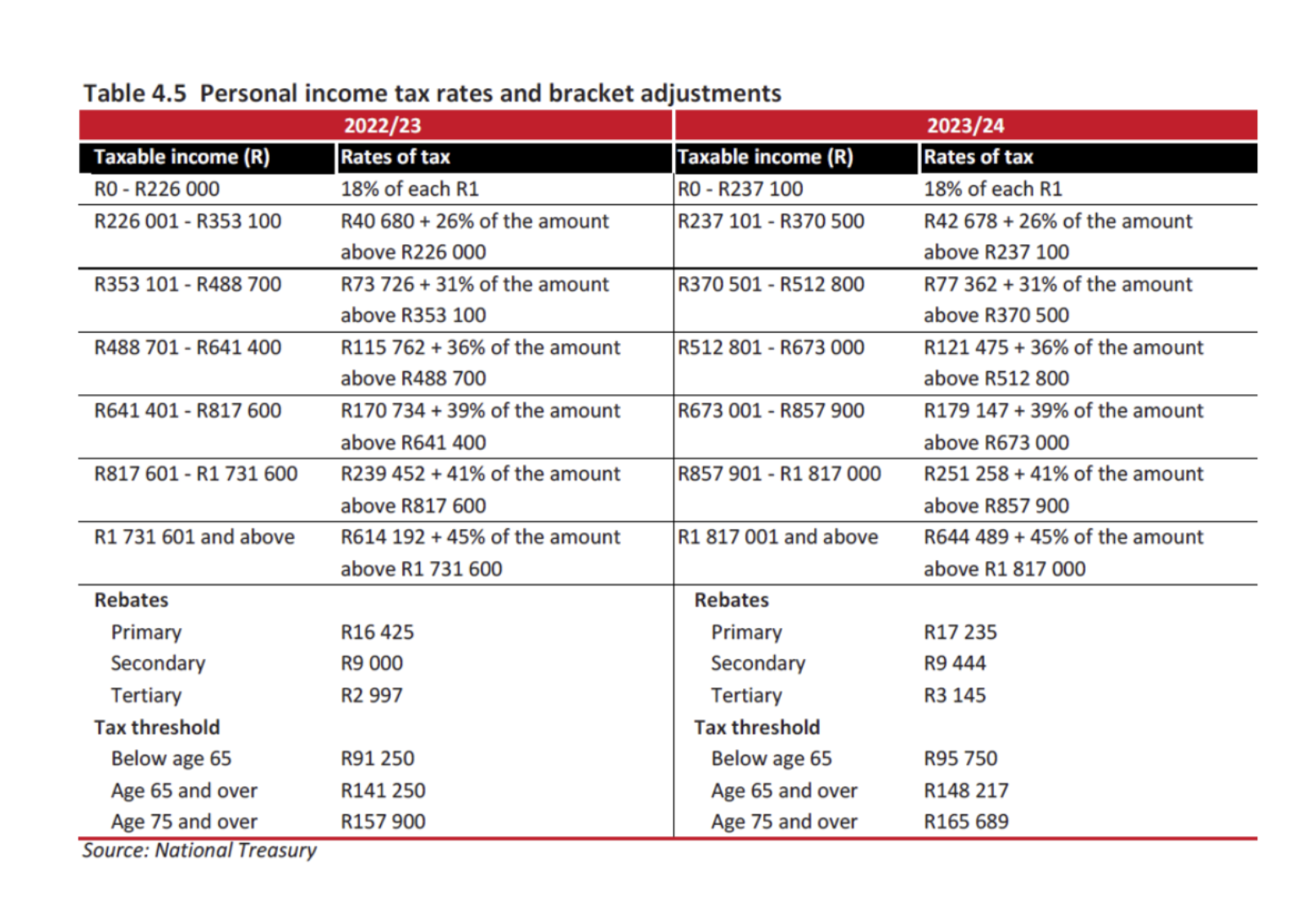BUDGET 2024
Government to squeeze an additional R15-billion revenue out of struggling consumers

Finance Minister Enoch Godongwana’s Budget asks South African consumers to shoulder the burden of sourcing an additional R15-billion in tax revenue. There are no hikes in the fuel levy, RAF levy or personal income tax rates, but no inflation adjustments either.
After much speculation about where and how the government was planning to raise an additional R15-billion in tax revenue, it turns out the burden falls squarely on the consumer.
The only bright spot would appear to be that the general fuel levy and the Road Accident Fund (RAF) levy remain unchanged for the third year in a row. This translates to tax relief of around R4-billion.
Elna Moolman, head of South African macroeconomic research at Standard Bank, called it when she predicted that there would not be a hike in personal income tax rates. Moolman anticipated fiscal drag – an increase achieved by not fully adjusting the personal income tax thresholds for inflation, which increases individuals’ tax burdens over time.

The Budget Review acknowledges that recent personal income tax collections have outpaced expectations, but rate increases could threaten economic growth and prompt negative taxpayer behaviours.
Personal income tax, rebates and medical tax credits have not seen adjustments for inflation, which will mean another R18-billion odd in revenue. Treasury loses out on a potential R4-billion by not raising any fuel levies, and then the balance of the R15-billion is made up by increases on excise taxes for alcohol and tobacco products.
The annual tax-free threshold for a person under the age of 65 will remain at R95,750 from 1 March 2024. Medical tax credits will remain at R364 per month for the first two members and R246 per month for additional members.
Personal income tax rates
Gross tax revenue for 2023/24 is expected to be R1.73-trillion, which is R56-billion lower than expected in the 2023 Budget.
Two long-term reforms – the two-pot retirement system and the minimum corporate tax rate – will be implemented in 2024/25.
Over the next three years, tax revenue is expected to grow by R401.7-billion, reaching R2.13-trillion in 2026/27 and a tax-to-GDP ratio of 25.3%.
Revenue from two-pot withdrawals
The two-pot system, which will come into effect from 1 September, will require a two-thirds retirement component, which must be preserved until retirement, while the remaining one-third will be allocated to a savings component, allowing one withdrawal per year prior to retirement.
Retirement fund members will be able to access “seed capital” – or a portion of their available balance – immediately on 1 September 2024. The seed capital will be a minimum of R2,000 or 10% of your savings in the “vested component” as of 29 February 2024.
This money will not be accessible without costs – withdrawals will be taxed at your income tax rate, which immediately makes withdrawals a less attractive prospect for those in the higher income tax brackets.
“The two-pot system ensures that we strike a balance between preserving contributions to safeguard a better retirement for members, while addressing the plight of the people to access some of their retirement funds to help ease their financial burdens in times of distress,” Finance Minister Enoch Godongwana said in his Budget speech.
National Treasury estimates that R5-billion is likely to be raised in 2024/25 because of tax collected as fund members access once-off withdrawals linked to the two-pot retirement reform. The seed capital transfer is a once-off event, so this revenue will not flow into the following fiscal years.
VAT increase a no-go
On the subject of Value-Added Tax (VAT), which did not increase, economist Dawie Roodt said an increase would have been a “political no-go”, particularly in an election year. “In the case of personal income taxes and company taxes, if you increase that, you’re probably going to lose more money than what you’re going to get in,” he said. DM
















The higher rate of tax only applies to the excess over R360,000, ignoring rebates etc…. not to the whole.
Elementary Neesa